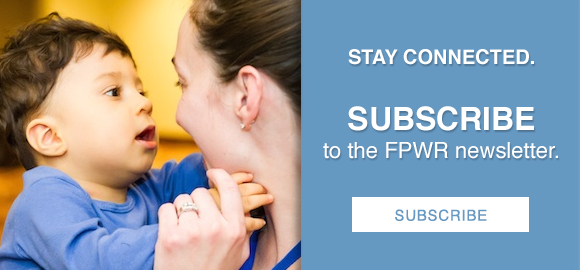The 2024 FPWR Conference opened with a powerful session featuring a panel of experts that left attendees inspired and better equipped to navigate the challenges of PWS. From addressing behavioral challenges to securing effective Individualized Education Plans (IEPs) and learning about a potential treatment for hyperphagia, attendees gained invaluable tools to support their loved ones.
Watch the video below to dive into insights from the 2024 FPWR Conference welcome session. Short on time? Scroll down and explore specific topics (with timestamps) like managing behaviors, navigating IEPs, and exciting updates on hyperphagia treatment.
Behavior Panel: Understanding Challenges and Celebrating Strengths
Timestamp: [4:55] The session began with a panel featuring experts Patrice Carroll, Elizabeth Roof, and Dr. Deepan Singh. They shared strategies for managing the behavioral challenges associated with PWS while highlighting the strengths and unique qualities of individuals in this community.
Parents often contact experts during times of transition or crisis—when school routines change or new behaviors emerge. The panelists emphasized the importance of structured environments, noting how predictability can help reduce triggers and foster success.
While behavior management can be complex, they shared hope and inspiration. Patrice Carroll described individuals with PWS as resilient and optimistic, waking up every day ready to embrace life’s challenges. Elizabeth Roof added that their humor and honesty make them a joy to work with.
IEPs: Building Safety and Support in Schools
Timestamp: [18:12] Dr. Destiny Pacha, an educator and advocate, offered practical advice for creating effective Individualized Education Plans (IEPs) for children with PWS. She shared her experience supporting families who struggled to secure the right accommodations.
Pacha stressed the importance of including an Individualized Health Plan (IHP) in the IEP to address safety and medical needs. She also recommended annual staff training to ensure teachers and school personnel understand the specific challenges associated with PWS.
Her key message was clear: persistence and advocacy are essential for creating a supportive school environment where children with PWS can thrive.
Soleno Therapeutics: A Step Forward in PWS Treatment
Timestamp: [27:57] Dr. Anish Bhatnagar, CEO of Soleno Therapeutics, provided an update on DCCR, a promising treatment for hyperphagia in PWS. The FDA is expected to decide on the drug’s approval by the end of 2024.
FDA Review Update
Soleno recently announced that the FDA determined there does not appear to be a need for an advisory committee meeting at this time for the New Drug Application (NDA) for DCCR. However, the Division’s review team will continue to consider the potential need for an advisory committee meeting during their ongoing review.
Commitment to Accessibility
Dr. Bhatnagar reassured families of Soleno’s commitment to ensuring financial barriers do not prevent access to DCCR. For families participating in clinical trials, he confirmed they would have continued access to the treatment if approved.
Timestamp: [36:14] Q&A
This session provided valuable insights into behavior management, educational strategies, and medical advancements for individuals with PWS. With actionable guidance and updates, attendees gained practical tools to support their loved ones and navigate the challenges of PWS.
For more details, watch the full session from the 2024 FPWR Conference.








